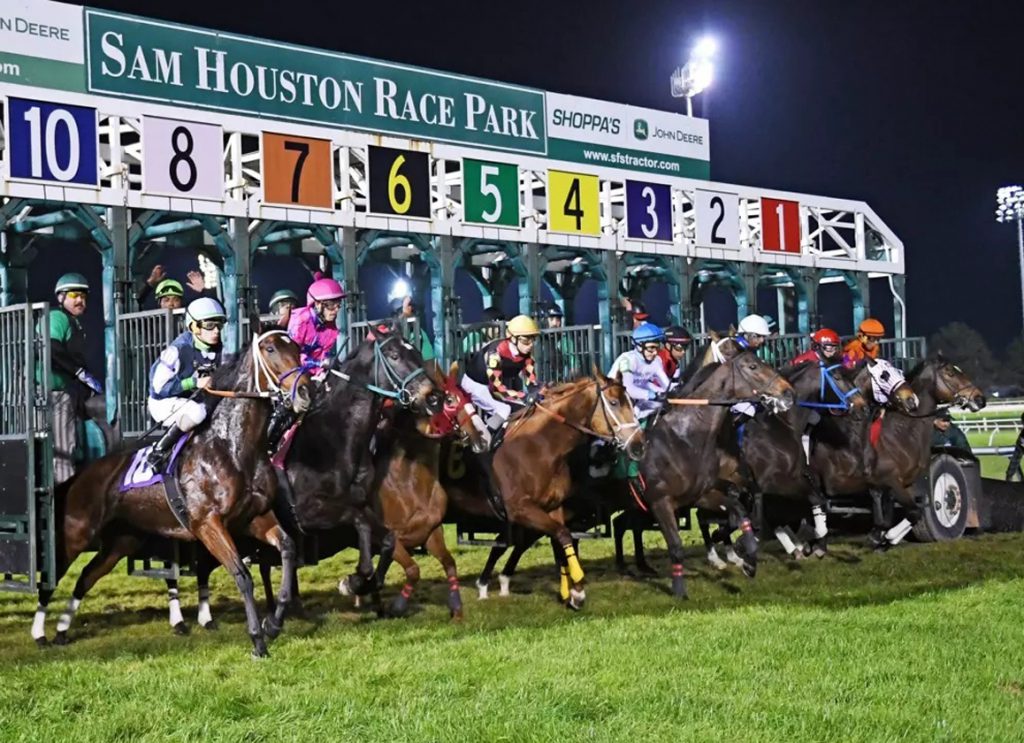Like rival boxers primped and posturing, proponents of the Horseracing Integrity and Safety Act (HISA) and the Texas Racing Commission (TXRC) have taken to their respective corners during the unfolding legal fight over the law and have remained un-budged.
At stake is the lucrative business of nationally beaming Texas's simulcast wagering signal.
The TXRC initially took the stance that it is legally prohibited from permitting Texan tracks to export their signals. Then at the start of February, the Fifth Circuit Court of Appeals sent the congressionally amended version of HISA down to the district courts for further review.
The Texas commission interpreted this action as meaning that HISA is “facially unconstitutional and therefore has no effect on the State of Texas,” seemingly opening the door to Texas tracks once again engaging in interstate simulcasting.
As of writing, no Texas-based track has adopted that policy, and the simulcasting signal remains flatlined. Furthermore, just this May, the federal court judge out of the Northern District of Texas, Lubbock Division, found this version of HISA as constitutional. The case has now been appealed back up to the Fifth Circuit Court of Appeals.
In the meantime, though purses in the state remain fairly stable, the tracks are taking a huge financial knock, and horsemen there are raising concerns about other ancillary impacts on their businesses. Some of the horsemen are now asking: Can HISA be implemented in the state in order to facilitate the interstate simulcasting signal?
The TXRC has taken the stance that state law bars HISA from being implemented in the state unless it is replaced or altered to become a cooperative agreement grant program–an alternative financial and regulatory model for the federal government to cooperate with individual states.
Even then, “our statute doesn't even allow us to take grants,” TXRC executive director, Amy Cook, told the TDN last week.
“We've actually made a request to have our statute conform, so, if HISA did become a cooperative agreement grant program, and the [Federal Trade Commission] FTC became a grantor, we could actually take that money and work with HISA. That's the only pathway I see,” Cook added.
In a follow-up email, Phil Fountain, the TXRC's chief of staff, pointed to a previously released commission “fact-sheet” broadly outlining its legal argument. The fact-sheet cites the Texas Racing Act, which directs the commission to “regulate and supervise each racing meeting in this state” that involves wagering.
“There is no provision for the Texas Racing Commission to cede this authority to another party. This means there is no preemption of Texas law under HISA's opt-in structure because HISA does not regulate pari-mutuel horseracing activities,” wrote Fountain.
A legal analysis put together for HISA by the law firm Akin Gump takes the opposite stance. It finds that HISA indeed preempts the Texas law that the commission says confers it exclusive authority to regulate all matters relating to horseracing.
Furthermore, under HISA and state law, the TXRC can implement HISA and still continue to regulate matters outside the reach of HISA's jurisdictions, the Akin Gump analysis finds.
“There is no legal impediment to reversal of the Texas Racing Commission's self-destructive policy decision of restricting interstate wagering on horse racing. Under State and federal law, the Commission may continue to regulate horse racing in Texas to the extent not preempted by HISA rules,” the analysis for HISA finds.
Which side stands on the sturdiest legal legs?
For an independent take on the dispute, the TDN spoke with Daniel Rodriguez, former dean of the Northwestern University Pritzker School of Law and former Minerva House Drysdale Regents Chair in Law at the University of Texas, Austin.
Prior to being asked to sort through the legal bones of the matter, Rodriguez said that he was unaware both of the HISA legislation passed into law at the end of 2020 and of the legal conflict that has arisen in Texas.
His answers hinge on the looming decision in the Fifth Circuit Court of Appeals, which is set to rule on the constitutionality of the congressionally amended version of HISA. That ruling, however, could still take a number of months.
“What the Fifth Circuit is being asked to do is rule on a matter of federal constitutional law, just as they were asked to do on the ruling back in 2022, when the Fifth Circuit struck down the statute as violating what they call the private non-delegation doctrine,” he said.
If the court rules in tandem with the Sixth Circuit Court of Appeals–which recently found the revised HISA statute constitutional–there is “absolutely nothing” in Texas statute that bars HISA from being implemented in the state, he said. “That we can all agree on–even the lawyers for the Texas racing commission.”
When asked about the Texas commission's stance–that state law bars HISA's implementation in Texas, irrespective of any court ruling in its constitutionality–Rodriguez called it “foolishness” as well as “head-scratching.”
In other words, what the commission is saying in that scenario is that “I can't comply with the law,” he said, before describing the stance as a policy posture rather than a solid legal argument.
“I lived in Texas for five years so I get to say that this is typical Texan intransigence,” Rodriguez said.
At the same time, Texas could indeed enter into a cooperative agreement grant program with the federal government, if HISA were structured that way, said Rodriguez. “You certainly could implement [HISA] through a regional compact. But Congress has chosen a different mechanism,” he added.
On the flip side, however, if the Fifth Circuit rules that the amended version of HISA remains unconstitutional–just as it ruled on the prior version of HISA–then the TXRC would be correct in barring HISA implementation in the state, said Rodriguez.
Rodriguez declined to weigh in on whether HISA could be implemented in Texas currently–that is, before the Fifth Circuit ruling drops–explaining that he had not researched the legal landscape of the question enough to opine on the matter.
More within Rodriguez's wheelhouse are the ideological whims and fancies of the various Courts of Appeals–including the Fifth Circuit.
“The Fifth Circuit has a reputation for being an eccentric court of appeals–they've reached judgments in the past that leave us law professors to scratch our heads and wonder exactly why their views are so outside the mainstream of other circuit courts. They do what they do,” he said.
When asked which way he thought the Fifth Circuit would rule on the constitutionality of the congressionally amended version of HISA, Rodriguez sided with the federal government. “I really don't anticipate the Fifth Circuit striking it down as unconstitutional,” he said.
In that scenario, said Rodriguez, the plaintiffs would likely file a petition of certiorari with the Supreme Court–a request that the Supreme Court orders a lower court to send the case up to them for review.
But in that instance, there would be no obvious “circuit split” between the Fifth and Sixth Circuit Courts of Appeals for the Supreme Court to weigh in on and consider, meaning it's unlikely the highest court of the land would take the case, he said.
“It's always important for those of us to check our biases, no matter how much expertise we have as law professors,” said Rodriguez.
“But in a nutshell, the issue is, 'can Congress, consistent with their authority, delegate authority to an administrative agency whose constitutionality has never been questioned–I'm talking the FTC–to establish rules for Thoroughbred horse racing?' And the answer to that now is clearly, 'yes,'” he said.
The post Legal Expert: If Fifth Circuit Finds HISA Constitutional, Texas “Absolutely” Can Implement Law appeared first on TDN | Thoroughbred Daily News | Horse Racing News, Results and Video | Thoroughbred Breeding and Auctions.



